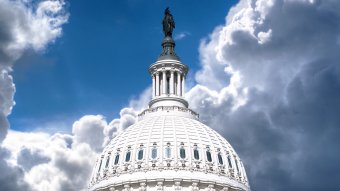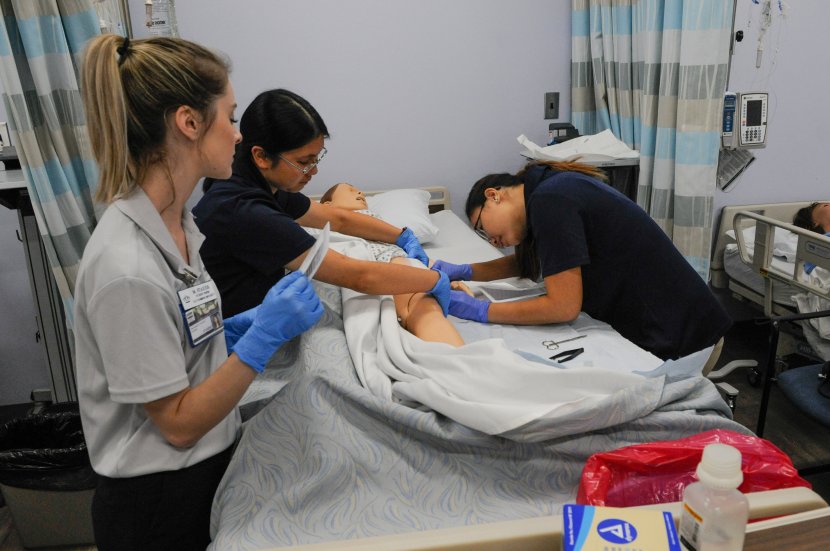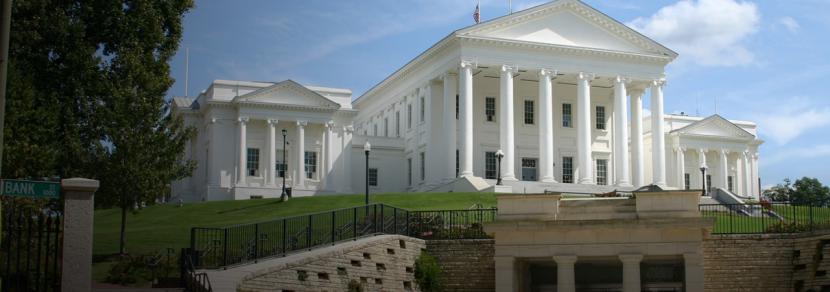This report examines regional perceptions of political figures and political affiliation from the 2018 Life in Hampton Roads survey (LIHR 2018) conducted by the Old Dominion University Social Science Research Center.
Politics, Social Issues, and Perception of the Police
This report examines regional perceptions of political figures and political affiliation from the 2018 Life in Hampton Roads survey (LIHR 2018) conducted by the Old Dominion University Social Science Research Center. Data from prior years is also provided when available to show comparisons in responses. Responses were weighted by city population, race, age, gender and phone usage (cell versus land-line) to be representative of Hampton Roads. For additional information on survey methodology and analyses of other issues, please see the SSRC website at www.odu.edu/ssrc.
The political climate is one factor in understanding attitudes on a variety of social and political issues. Respondents were asked an array of questions, including party affiliation, political attitudes and voter registration. The 687 participants gave a variety of answers, but much of the data reflects response patterns seen in years past.
Political Affiliations and Attitudes
A larger proportion of respondents reported feeling closer to the Democratic Party (37 percent) or being independent (30.1 percent) than the Republican Party (16.8 percent) or something else (8.9 percent).
The vast majority of respondents said they were registered to vote (92.8 percent), while only 6.2 percent were not registered to vote.
Donald Trump had been president for over a year and a half when the Life in Hampton Roads survey began, and respondents were asked how strongly they approved or disapproved of his job performance. A majority (60.7 percent) disapproved (25.9 percent) or strongly disapproved (34.8 percent). Only 6.9 percent strongly approved of his performance, while 21.7 percent approved.
Trump's approval rating varied significantly across race and political affiliation. A majority of Republicans strongly approved or approved of his performance, compared to only 3.7 percent of Democrats. Additionally, 53.7 percent of white respondents approved or strongly approved of his performance compared to only 3 percent of Black/African-American respondents.
Respondents were asked their opinions of the ethical standards of elected officials at the city and state level. Almost half agreed or strongly agreed that elected officials in their city (48.7 percent) and in state government (49.8 percent) have high standards. Suffolk had the highest percentage of respondents who agreed or strongly agreed (67.6) and Portsmouth had the lowest percentage (31.8).
However, only 23 percent agreed or strongly agreed that members of Congress have high ethical standards. Chesapeake had the largest percentage agreeing or strongly agreeing, but this was still less than one-third.
The majority of those interviewed (61.6 percent) said they believe Hampton Roads' cities and counties compete against each other to further their own interests. Conversely, only 27.2 percent feel that the cities cooperate to improve the region. Beliefs about competition between cities varied significantly across Hampton Roads. Even in Newport News, where residents reported the most cooperation, 52.6 percent believed the cities competed against each other. Suffolk and Virginia Beach reported somewhat higher levels of competition (66.7 and 65.6 percent, respectively) and in Hampton, Norfolk and Chesapeake the number was over 70 percent (70.5, 73.1 and 79.6, respectively). In Portsmouth, 84.4 percent of residents reported competition over cooperation.
Perceptions of Local Police
A majority reported being somewhat satisfied (43.6 percent) and very satisfied (34.8 percent) with local police. Only 11.7 percent reported being somewhat dissatisfied and 7.5 percent reported being very dissatisfied. Additionally, 2.4 percent either did not know or refused to answer. Similarly, a majority either somewhat trusts police (43 percent) or trusts police a great deal (38.1 percent). Another 10.2 percent do not trust the police at all and 7.4 percent do not trust the police much.
While overall trust of local police was high, there were differences when looking at race and political affiliation. Over 90 percent (93.7) of white respondents trust local police a great deal or somewhat compared to only 67.6 percent of African-Americans. Additionally, 93.9 percent of respondents who felt closer to the Republican Party trusted local police a great deal or somewhat compared to 79.7 percent of those who felt closer to the Democratic Party.
There were also significant differences across the cities. Chesapeake (89.9), Virginia Beach (86.4), and Suffolk (81) had the highest percentage of residents saying they trust the local police a great deal or somewhat. Hampton (79.7), Norfolk (78.2), and Newport News (77.4) were somewhat lower, while Portsmouth (68.1) was substantially lower.
Confederate Monuments
The survey aimed to identify what residents thought should be done with monuments in downtown Norfolk and Portsmouth. While responses were mixed, just under one-third wanted leave them as is (30.8 percent). About one-quarter (25.5 percent) said signs should be added providing historical context. Another 40.1 percent thought they should be relocated to a cemetery or museum (26.6 percent) or removed altogether (13.5 percent). The respondents who favored removal or relocation were then asked who should pay for that. The majority (65.2 percent) said state (38.2 percent) or city government (27 percent), and 27.2 percent said private donations.
There were significant differences across race and political affiliation regarding what should be done with the monuments. Only 27.4 percent of white respondents thought they should be relocated or removed compared to 62.9 percent of African-Americans. Additionally, only 8 percent of Republicans thought they should be relocated or removed compared to 64 percent of Democrats and 33.2 percent of Independents and those who identified as something else.
All Life in Hampton Roads Data Analyses will be placed on the Social Science Research Center website as they are released (http://www.odu.edu/al/centers/ssrc). Follow-up questions about the 2018 Life in Hampton Roads survey should be addressed to:
Randy Gainey, PhD
Faculty Director
The Social Science Research Center
Professor of Sociology and Criminal Justice
Old Dominion University
757-683-4794 (office)
Or
Tancy Vandecar-Burdin, PhD
Associate Director
The Social Science Research Center
Old Dominion University
757-683-3802 (office)
Related News Stories
Life in Hampton Roads Survey Shows Highest Percentage of Poor Health Respondents in the Past Five Years
Less than 30 percent of respondents in Hampton Roads rated their own general health as excellent. (More)
Annual Report Has Good News for State's Economy, with a Caveat
State of the Commonwealth Report indicates Virginia's recovery seems to have taken hold, but headwinds could be on the horizon. (More)
Annual Survey Examines the Impacts of Traffic Congestion and Tolls
The 2018 Life in Hampton Roads survey asked residents for their opinions on bridge and tunnel tolls and about alternative transportation. (More)







